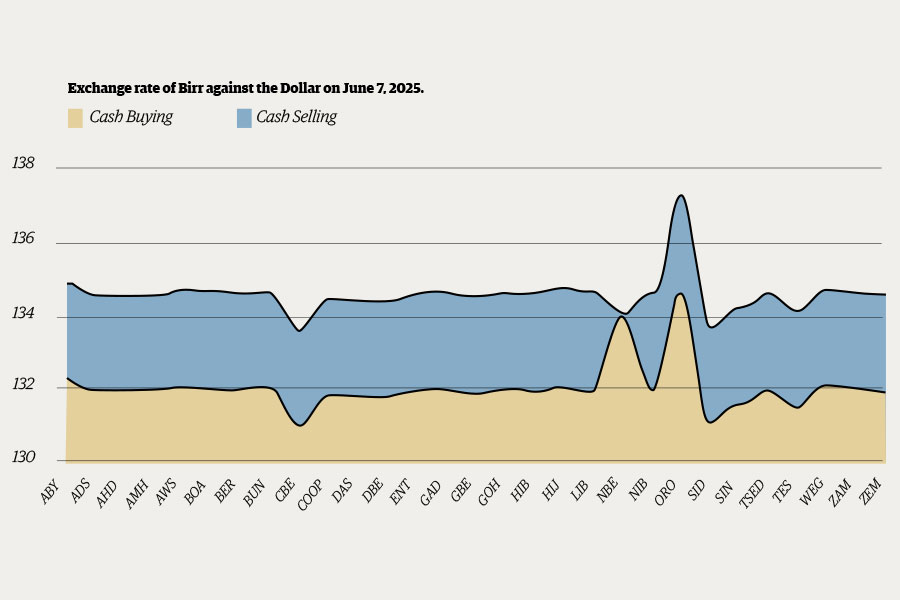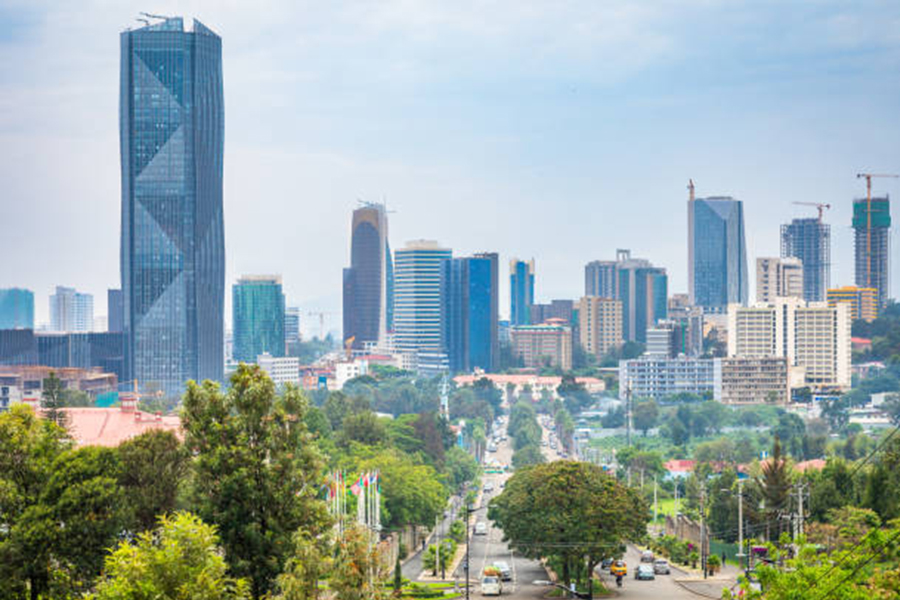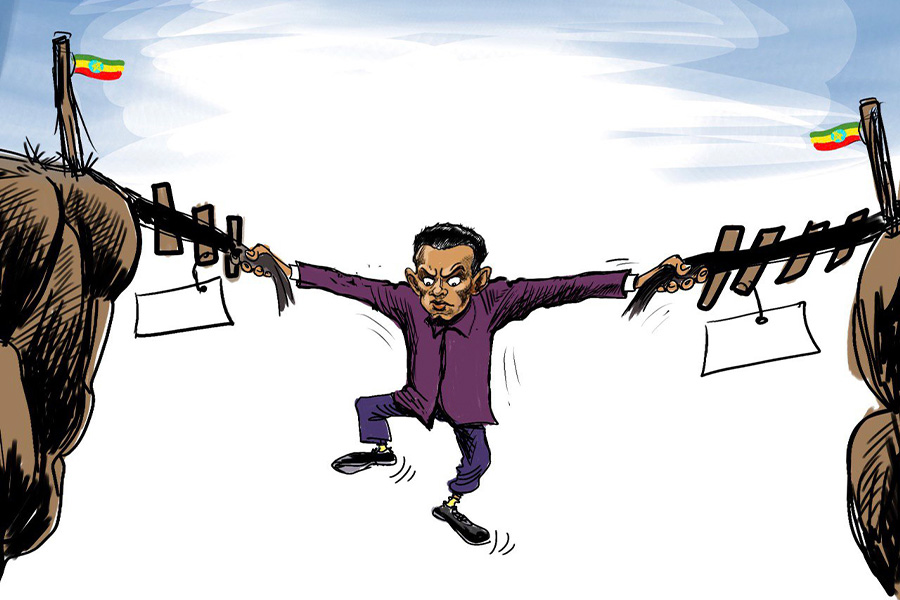
Editorial | Apr 13, 2025
Seid Mohammed, in his mid-20s, is an assistant lecturer at Wolaita Sodo University. Born and raised in Gonder City, 727Km north of the capital, Seid attended his primary and secondary school in his hometown.
A sixth child to his family, his interest was to study Law. But as the overall point he scored on the University Entrance Examination was low to join the department, he was placed in the field of public relations and advertising at Meqelle University's social science department.
Though it was not his choice, after discussing it with his family, he decided to enroll in and pursue his education and career in public relations and advertising.
Three years of university flew by, and Seid graduated from Meqelle University in 2017 with a GPA of 3.5. Because of his high grades, he was able to quickly find a job at the Ethiopian Leather & Development Institute as a public relations officer.
After working at the Institute for three months, he joined Herald Newspaper, a government-owned English language newspaper, as a journalist where he worked for a year.
At the end of 2018, Seid was able to land a job at Wolaita Sodo University as an assistant lecturer in the department of journalism and communication.
Seid gave a course on public relations theories and practices for freshman students. The three-credit hour course brought him in contact with his class twice a week.
He says he likes his job and enjoys teaching. He also believes he is qualified for the job and that he is good at it.
“I continuously read and update myself,” said Seid.
Seid is one of the 9,000 university lecturers who teach university classes with a bachelor's degree. In the past years more and more bachelor's degree holders were hired as assistant lecturers as the number of universities in the country was continuously increasing.
However, a new education road map prepared by the Ministry of Education, which will govern the Ethiopian education sector for the coming 10 years, is set to curb the practice and requires at least a master's degree to be a lecturer at the higher learning institutions.
Tilaye Gete (PhD), Ministry of Education.
The road map, which took three years to prepare, was developed by a team of six pedagogy experts and is expected to replace the existing educational system that has been in place for the last 24 years.
According to the Ministry, 3.5 million people discussed the road map in all regional states, and 17 ministries gave comment.
The research team summarized their 700 pages of research findings into 100 pages and presented it to the public for discussion.
“The new road map is needed, because the existing education policy is out of date and has lots of quality problems,” said Geremew Huluqa (PhD), state minister of Education.
“The new road map helps us to address and solve the decline of the quality of education,” Geremew told Fortune.
The road map suggests 36 new proposals that it believes can transform the current education system.
The education road map covers six thematic areas: pre-primary and primary education, secondary and preparatory education, teacher education and development, higher education, Technical and Vocational Education and Training (TVET) and policy, governance and leadership.
In the existing system, students spend eight years in primary schools, two years in secondary schools and two years in preparatory schools, but the new road map shuffles this programme. Now students will take a regional exam at the end of grade six and national exams in grades eight and 12.
At the higher education level, the road map raises three-year degree programmes to four.
“The additional year is dedicated to providing common courses like geography and anthropology at the freshman level," said Dechasa Gurmu, communication affairs director at the Ministry of Science & Higher Education.
The new road map also suggests higher education cost-sharing tuition fees be increased from 15pc to 30pc.
The cost-sharing scheme was implemented in 2003 as an alternative source of generating revenue and to give students a sense of responsibility. The Ministry of Revenue collected 488 million Br from the cost-sharing repayment scheme last fiscal year.
Two weeks ago the road map was sent to the Council of Ministers for legislation, and it is expected to be legislated before the new education season starts.
State universities welcome the new education road map and believe it will help them excel in their undertakings.
“The new road map, if it implemented properly, will help our universities to become research centres,” said Abebe Dutoro, public and international relations director at Addis Abeba Science & Technology University.
The road map differentiates universities into four categories based on the nature and courses they provide, which are research and postgraduate universities, applied science universities, comprehensive universities and special collages.
“The universities are differentiated to promote institutional quality and specialization,” said Dechasa.
There are 50 state universities in the country and 38 teachers education colleges that provide a three-year diploma training in teaching through regular, summer and extension programmes.
Currently, there are 873,000 students studying for their first degrees in these universities, and this number is expected to grow to 1.1 million next year.
Social sciences and humanities departments have the highest number of post-graduate students, with 30.8pc of the total post-graduate enrollment, followed by business and economics departments with a 21.5pc enrollment share.
Afework Gebreegziabher, a lecturer of journalism and communication at Meqelle University’s College of Social Sciences & Languages for a decade, believes that the policy intervention is a proper and timely move that will have a positive impact on the country’s education sector.
“Even though the existing education policy states that higher education is free and secular, the practice has been quite different,” said Afework .
Experts in the field tend to be generally hopeful about the road map but believe that the implementation will face sufficient human and material scarcity.
The government has to be careful in implementing the proposed changes, said Dawit Asrat (PhD), a lecturer at Bahir Dar University's College of Education & Behavioral Sciences.
“The task of creating productive citizens is not something we do just for now,” said Dawit. “It should be a continuous process that requires careful thought, time and planning."
For this fiscal year, the country allocated 50.6 billion Br, 13pc of its total budget for education. The road map, which is set to be introduced this academic year, will also take 26pc of the total 34,560 university lecturers at state universities out of the workforce.
Seid, though he will be directly affected by the changes, says he is in support of the road map.
He argues the existing curriculum didn’t inspire teachers and students to perform at the best of their capabilities.
“I hope that the new road map changes this and will help universities to produce graduates who are ethical, academically able and problem-solving thinkers,” said Seid.
The Ministry of Higher education says it won’t let go of its lecturers with bachelor's degrees and rather will offer them a chance to acquire their master’s degree.
Luckily for Seid, his University had already offered him the chance to study for his master’s degree before the road map was introduced, and he doesn’t have to wait to know what will happen to him.
“I took the offer and will enroll in Jimma University’s print and online journalism department next year," said Seid.
PUBLISHED ON
Aug 31,2019 [ VOL
20 , NO
1009]

Radar | Aug 21,2021

Money Market Watch | Jun 08,2025

Fortune News | May 23,2025

My Opinion | Sep 28,2024

Editorial | Nov 09,2024

Dec 22 , 2024 . By TIZITA SHEWAFERAW
Charged with transforming colossal state-owned enterprises into modern and competitiv...

Aug 18 , 2024 . By AKSAH ITALO
Although predictable Yonas Zerihun's job in the ride-hailing service is not immune to...

Jul 28 , 2024 . By TIZITA SHEWAFERAW
Unhabitual, perhaps too many, Samuel Gebreyohannes, 38, used to occasionally enjoy a couple of beers at breakfast. However, he recently swit...

Jul 13 , 2024 . By AKSAH ITALO
Investors who rely on tractors, trucks, and field vehicles for commuting, transporting commodities, and f...

Nov 1 , 2025
The National Bank of Ethiopia (NBE) issued a statement two weeks ago that appeared to...

Oct 25 , 2025
The regulatory machinery is on overdrive. In only two years, no fewer than 35 new pro...

Oct 18 , 2025
The political establishment, notably the ruling party and its top brass, has become p...

Oct 11 , 2025
Ladislas Farago, a roving Associated Press (AP) correspondent, arrived in Ethiopia in...